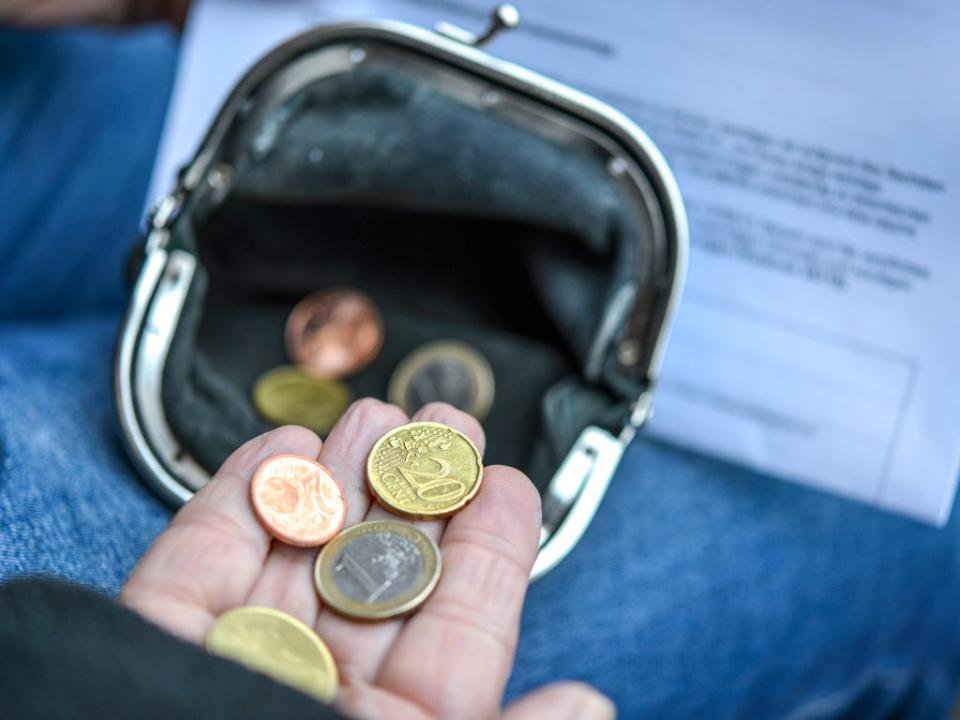In the red: loan defaults rise as cost of living crisis bites

As prices rise across the board more consumers are turning to credit to cover everyday costs. Now around a third of us spend some of each month in the red, according to research from Hargreaves Lansdown. One in 10 also spend at least half of the month in the red and one in 20 are trapped in a never-ending cycle of debt.
The cost of living crisis has seen prices rise on most things we regularly buy, with significant hikes to energy and council tax bills. The Ukraine war has added to this financial pressure and things are going to get a lot worse before they get better.
Increases to the Bank of England interest rate are also predicted to see the cost of mortgages rise and the cost of borrowing increase. Both are expected to lead to more people defaulting on these forms of debt.
Borrowing on credit is on the rise as many consumers simply can’t afford to pay for everyday spending such as energy bills or grocery shopping. They haven’t been given a pay increase, and while benefits rose slightly in April they’re still down overall in the face of soaring inflation.
There is a real concern that high-interest borrowing and unregulated credit will rise further as desperate consumers look for ways to continue paying their bills. The rise of defaults will also mean those individuals have less choice in the future when it comes to borrowing and may only be able to use high-cost options.
Debt charities have issued repeated warnings, stating that even before the current spike in inflation and round of price rises, consumers were already suffering financially.
StepChange, for example, said last year that 28 per cent of its clients were in arrears on their electricity bill, and 23 per cent on their gas bill, compared to 17 and 13 per cent before the pandemic respectively.
While Citizens Advice again broke a record in March for the number of people it referred to food banks or other charities, up 44 per cent compared to the same time in 2021. It says around five million people are unable to pay their energy bills, after the most recent hike, and this number is set to triple if October’s predicted rise goes ahead.
It also reported in March that one in 12 were using unregulated borrowing through Buy Now Pay Later (BNPL) services to cover everyday spending, with young people and those receiving universal credit twice as likely to be using it.
There have also been gloomy predictions from the financial world.
Britain’s biggest banks have warned about a rise in the number of consumers defaulting on unsecured lending and loans in the next few months. In the credit conditions survey from the Bank of England, there were also predictions that borrowers would struggle to repay credit card debt and other loans in the face of high living costs.
Lloyds Banking Group, the largest mortgage provider in the UK, has also issued concerns about the uncertain economic outlook in the country. It said rising costs had already meant its customers were cutting back on things like subscriptions and there had been an increase in those defaulting on loans.
Sarah Coles, senior personal finance analyst at Hargreaves Lansdown, said: “More of us are drifting into the red earlier and earlier each month, either falling into our overdraft or racking up more in debts on things like credit cards and BNPL than we have in our current account.
“What’s particularly worrying is that there are signs that more people will be unable to stay on top of this borrowing. The Bank of England surveyed lenders about the outlook, and they warned that the number of people falling behind with payments is likely to rise as we head into the summer.”
If you’re struggling with debt, or worried you might default on a loan, it’s crucial to speak to your lender as soon as you can. It should be able to help with a more affordable repayment plan or even an interest-rate holiday in some cases.
Not addressing the issue and ignoring payments or communications from a lender is the worst thing you can do, and it may lead to bigger debts and considerable damage to your credit score. Yet managing debt is overwhelming and it can feel like there is no way out.
Many people turn to debt management firms in times of financial hardship. But the same, free, confidential, advice is available from charities such as StepChange or National Debtline.
They can give you advice on where to start and cope with what may feel like an impossible task.

 Yahoo Finance
Yahoo Finance 